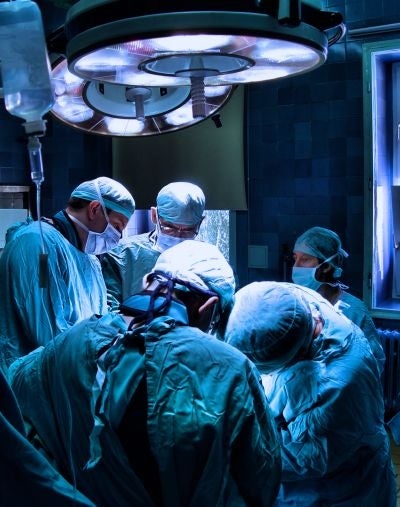Methicillin-resistant Staphylococcus aureus (MRSA) may soon meet its match with a new type of antimicrobial surface that kills the superbug but doesn't harm humans or animals.
MRSA, known as "golden Staph" in the UK, is resistant to antimicrobial agents commonly used and is estimated to cause 19,000 deaths and $3-4 billion (around 2-3 billion euros) in healthcare costs per year in the US. It's a looming problem in the UK as well - as of 2005, MRSA is estimated to have caused 3,000 deaths per year. The elderly, children, and people with weakened immune systems are particularly at risk, but over the past few years, there have been more and more serious outbreaks in gym locker rooms, college dormitories, and office spaces.
Scientists at the University of New Mexico in the US are working on a new type of antimicrobial surface that is inhospitable to MRSA but won't harm people or animals. They will present their results on October 21 at the science and technology-based AVS International Symposium and Exhibition in New Mexico.
The scientists developed a new polymer-type material, "conjugated polyelectrolyte," that becomes sterilized in the presence of regular fluorescent light, and has been shown effective at killing resistant strains of Staph. This opens up many potential applications, including the possibility of using these polymers as antibacterial countertops, but more work is ahead before consumers will see the product available.
The world has seen a slew of antibacterial and antibiotic products on the market over the years - soaps, socks, cutting boards, children's toys, toilet seats - most made with agents triclosan and tributyletin. More recently, antimicrobial silver ions have been manufactured into everything from washing machines to deodorant to repel bacteria. However, health and environmental concerns linger over whether or not the widespread usage of antibacterial products is strengthening the resistance of superbugs such as MRSA.
What are some practical ways of preventing an MRSA infection? The prestigious US-based Mayo Clinic suggests washing your hands for at least 15 seconds or using a hand sanitizer when you don't have access to soap and water. Also, be sure to keep wounds covered, and avoid sharing personal items, such as razors or towels. Shower with soap and water after athletic games, and sanitize linens if you have a cut or sore.
To read the abstract of the research: http://www.avssymposium.org/Open/SearchPapers.aspx?PaperNumber=BI-ThP-14
To read more on prevention: http://www.mayoclinic.com/health/mrsa/DS00735/DSECTION=prevention
Subscribe to Independent Premium to bookmark this article
Want to bookmark your favourite articles and stories to read or reference later? Start your Independent Premium subscription today.


Join our commenting forum
Join thought-provoking conversations, follow other Independent readers and see their replies